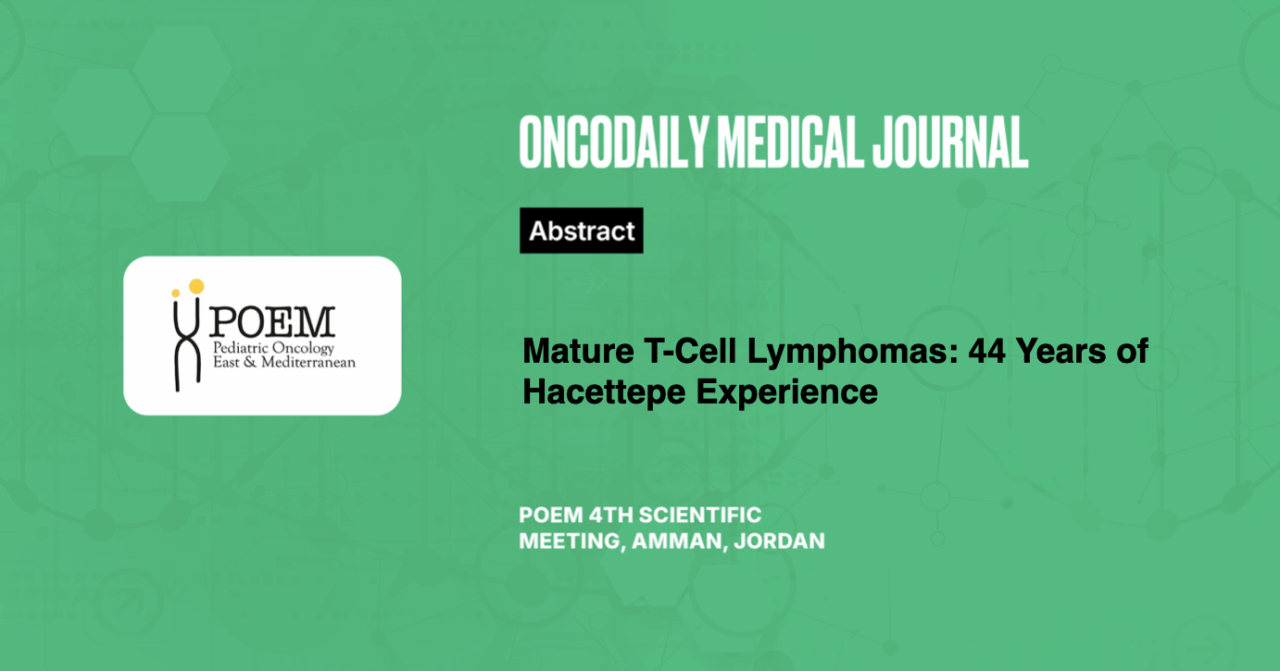Mature T-Cell Lymphomas: 44 Years of Hacettepe Experience
Abstract
Introduction: Mature T-cell lymphomas (MTL) are a rare, heterogeneous group. Anaplastic large cell lymphoma (ALCL) constitutes the majority.. We aimed to present the demographic and clinical characteristics of patients with MTL.
Methods: Among 1338 NHL cases followed up at Hacettepe University, Pediatric Oncology Department between 1980 and 2024, 65 MTL were evaluated retrospectively.
Results: There were 37 males and 28 females with a median age of 12.5 years. The primary involvement site was nodal in 52.3% of cases and extranodal in 47.7%. Histopathological subtypes were ALCL in 39 patients, peripheral T-cell lymphoma in 16, mycosis fungoides in four, CD8(+) mature T-cell lymphoma, NK-cell lymphoma, and hepatosplenic lymphoma in two patients each, and subcutaneous panniculitis-like lymphoma in one. ALK was positive in 69% of ALCL. Nine patients have stage I disease, eight stage II, 37 stage III, and eleven have stage IV disease. Eight patients had secondary hemophagocytic lymphohistiocytosis at diagnosis and one at relapse. Mismatch repair deficiency disorder was detected in one patient. Local treatments were applied to 4 patients with MF and one with ALCL, with isolated skin involvement. One patient was followed up without treatment after total excision of the mass. Thirty-seven patients (56.9%) were treated with ALL-type treatment, 11 patients (16.9%) with mature B-cell NHL, and nine patients (13.8%) with ALCL-type treatment. In 39 patients with ALCL, disease progression was observed in five patients, relapse was observed in eight patients (33%), and six (15%) patients died due to disease progression. The 5-year event-free survival (EFS) and overall survival (OS) in ALCL patients were 61% and 84%, respectively. In 22 non-ALCL patients, excluding MF, EFS and OS were 18% and 38%, respectively.
Conclusions: Mature T-cell lymphomas constitute 5% of all NHL seen in our department, and 60% were ALCL. Half of the patients had extranodal disease, and most had advanced-stage disease. The prognosis was worse in non-ALCL mature T-cell lymphomas, and most show early progression.





